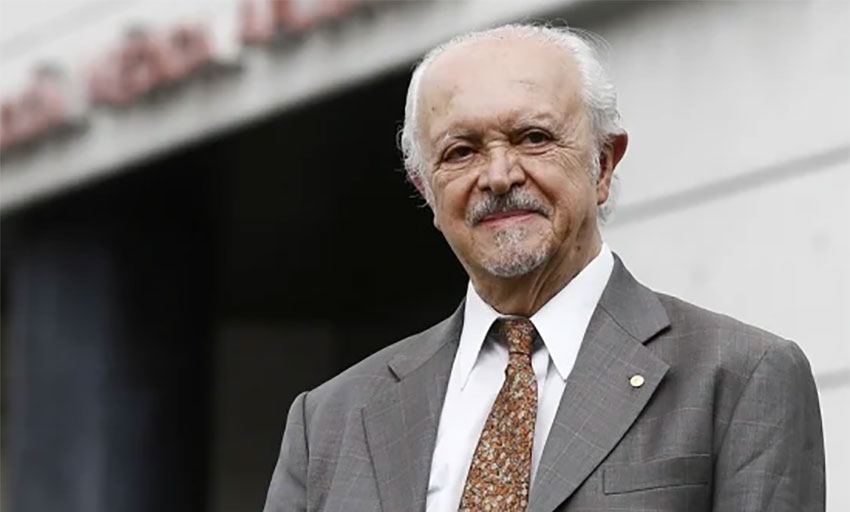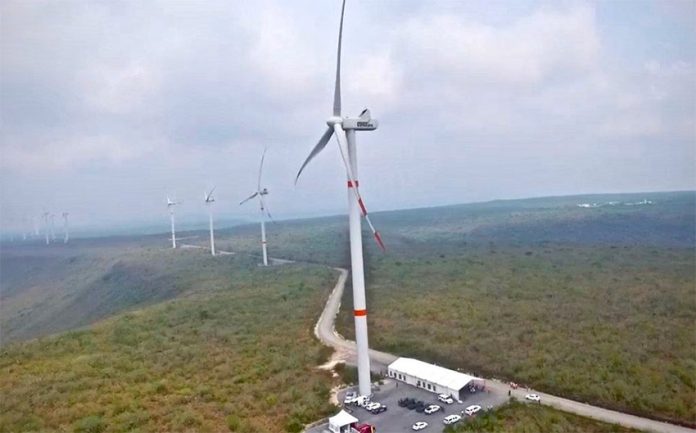Just as Mexico moves to give higher priority to electricity produced with petroleum, a Mexican Nobel Prize winner has called for fossil fuel energy generation to be phased out over the next 10 years in favor of renewable energy.
Mario Molina, a co-recipient of the 1995 Nobel Prize in Chemistry for his research on ozone depletion, said it was irresponsible for governments not to be working to reduce greenhouse gas emissions.
The only way to combat global warming is to replace the use of fossil fuels with renewable resources such as wind and solar, he said during a lecture that was broadcast online on Monday night.
Molina’s remarks came just three days after the federal government published a new energy policy that imposes restrictive measures on the renewable energy sector that could effectively prevent its expansion in Mexico and consolidate control of electrical power in the state-owned Federal Electricity Commission (CFE).
The publication of the policy came two weeks after the National Energy Control Center (Cenace) announced a plan to use excess fuel oil produced at state oil company refineries to ramp up energy production at old CFE plants.

To “improve the reliability of the electricity system” during the coronavirus pandemic, Cenace also announced a suspension of trials that allowed wind farms and solar parks to provide power to the national grid.
While the government appears intent on limiting renewable energy generation, Molina said the sector’s growth is essential in order to combat climate change. Governments should aim to stop using fossil fuels for energy generation by the end of this decade, he said.
The scientist said that governments have to be respectful of international climate agreements and urged them to take energy policy decisions based on scientific advice.
“We have to convince our heads of state and high-level officials of all governments to pay a lot of attention to science and not make decisions based on ideas that are not scientific,” Molina said.
It “makes no sense to promote the use of oil” for energy generation, he said, adding that “using fuel oil is absurd.”
Governments that don’t take steps to phase out the use of fossil fuels and reduce greenhouse gas emissions are demonstrating “an enormous lack of responsibility” and ethics.
Molina said that the Montreal Protocol, a 1997 international treaty designed to protect the ozone layer by phasing out the production of substances that cause ozone depletion, should serve as an example for governments in the current quest to stop, or at least slow, global warming.
“[The Montreal Protocol] is solving the problem, that shows us … that we can all work together and I believe that we can do it with the Paris [climate change] Agreement,” he said.
While Mexico’s government is waging a quasi-war on the renewable energy industry – President López Obrador is far more focused on “rescuing” the state-owned electricity and oil companies than tackling climate change – the legal system provides some hope for companies in the sector.
A coalition of business groups said they would “exhaust all legal recourse“ in their attempt to have the new energy policy revoked. Legal efforts have already resulted in five provisional suspension orders.
A federal judge on Monday issued two such orders against the Cenace measures, which will delay the start of at least 28 wind and solar farms that are required to complete trials before they are able to sell electricity to the CFE.
Administrative court judge Rodrigo de la Peza López Figueroa said that delaying the entry into operation of new renewable energy plants would have a negative impact on society and violate free competition rules.
The Cenace measures “could cause an unjustified rise in prices and a reduction in efficiency,” which would have an adverse effect on electricity customers, he said.
On Tuesday, the judge granted three more provisional suspension orders against the Cenace agreement.
Another hearing at which definitive suspension orders against the measures could be granted will be held Friday.
Source: El Universal (sp), Milenio (sp)
